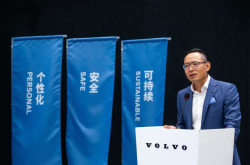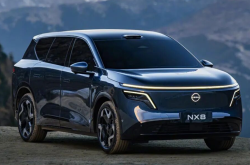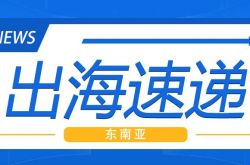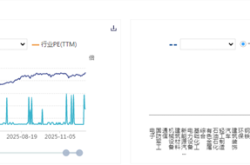Alibaba should have sold RT-Mart long ago
![]() 10/09 2024
10/09 2024
![]() 579
579
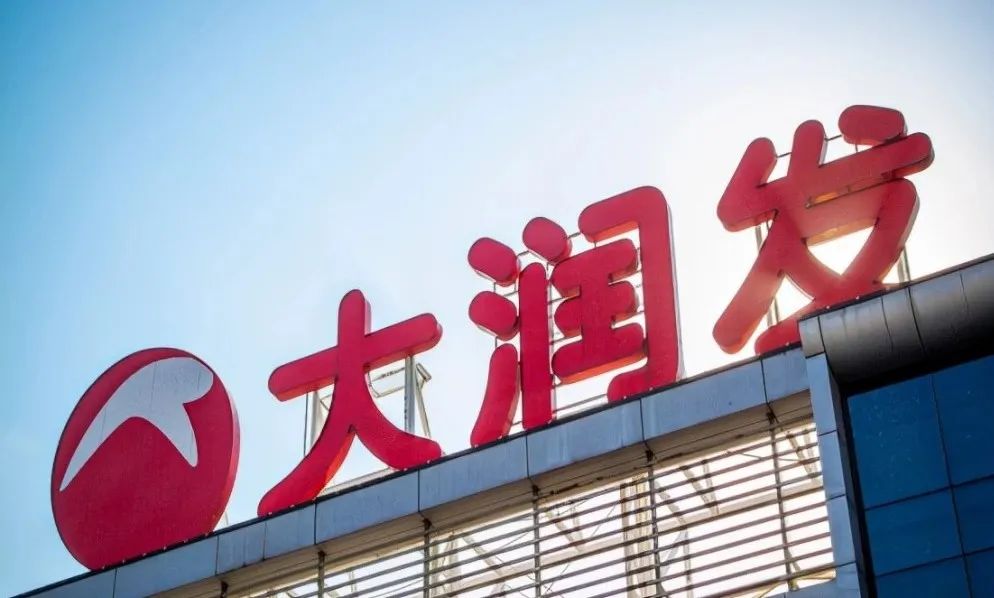
Alibaba no longer needs RT-Mart.
Source: Xinpinlue Finance
Author: Wu Wenwu
The retail industry has been buzzing with big news lately.
Xinpinlue Finance has noticed that on September 6th, the topic of "RT-Mart is about to be sold" once again hit the top of Baidu's financial hot search list, sparking widespread discussion within and outside the industry.
It turns out that on September 27th, RT-Mart's parent company, Sun Art Retail Group, announced that its shares would be suspended from trading on the Hong Kong Stock Exchange starting at 9:39 am due to the release of an announcement containing inside information related to a potential acquisition or merger.
According to Chivestor, potential buyers including CDH Investments and Hillhouse Capital are considering acquiring Sun Art Retail Group.
The negotiations are reportedly still in the early stages, and it is uncertain whether an agreement will be reached. Chivestor reached out to Hillhouse Capital, CDH Investments, and Alibaba for confirmation, but as of press time, had not received a response from Hillhouse Capital or Alibaba, while CDH Investments indicated that they were unaware of the matter.
Sun Art Retail Group has clearly stated in its announcement that it is related to acquisition and merger, signaling that rumors of Alibaba selling Sun Art Retail Group may indeed be true, although nothing is definitive yet.
Whenever RT-Mart and Sun Art Retail Group are mentioned, people immediately think of Alibaba, which currently holds approximately 79% of Sun Art Retail Group's shares. Sun Art Retail Group is one of the core pillars of Alibaba's new retail business.
It is neither surprising nor unexpected that rumors of Sun Art Retail Group and its subsidiary RT-Mart being up for sale have surfaced again in the market.
RT-Mart, once a renowned supermarket brand, has had an interesting development story. After being acquired by Alibaba, how did it go from being a favorite to being abandoned?
01
The Former King of Supermarkets
For many young consumers who no longer frequent supermarkets, RT-Mart may seem unfamiliar.
In the traditional supermarket era, RT-Mart was a formidable player, daring to compete with international supermarket chains. It's not an exaggeration to call it the king of supermarkets. RT-Mart has a fascinating development story.
Interestingly, RT-Mart did not start as a supermarket retail business but rather evolved from a textile industry group. RT-Mart originated in Taiwan and has since become a renowned supermarket giant.
Back in the 1990s, during the early stages of the development of traditional supermarkets in China, Run Tai Group, which was primarily engaged in the textile industry, decided to diversify its operations. Its founders, Huang Mingduan and Yin Yanliang, spotted an opportunity in mainland China's supermarket sector.
In 1997, Run Tai Group entered the mainland Chinese market by opening its first large-scale, modern supermarket chain that was entirely designed, planned, operated, and managed by Chinese people.
At the time, well-known foreign supermarket giants such as Walmart and Carrefour had already entered the Chinese market, creating significant competitive pressure.
RT-Mart chose to differentiate itself by adopting a high-quality bulk store model. In its second year of operation, RT-Mart achieved over RMB 20 billion in sales, making it a black horse in the industry.
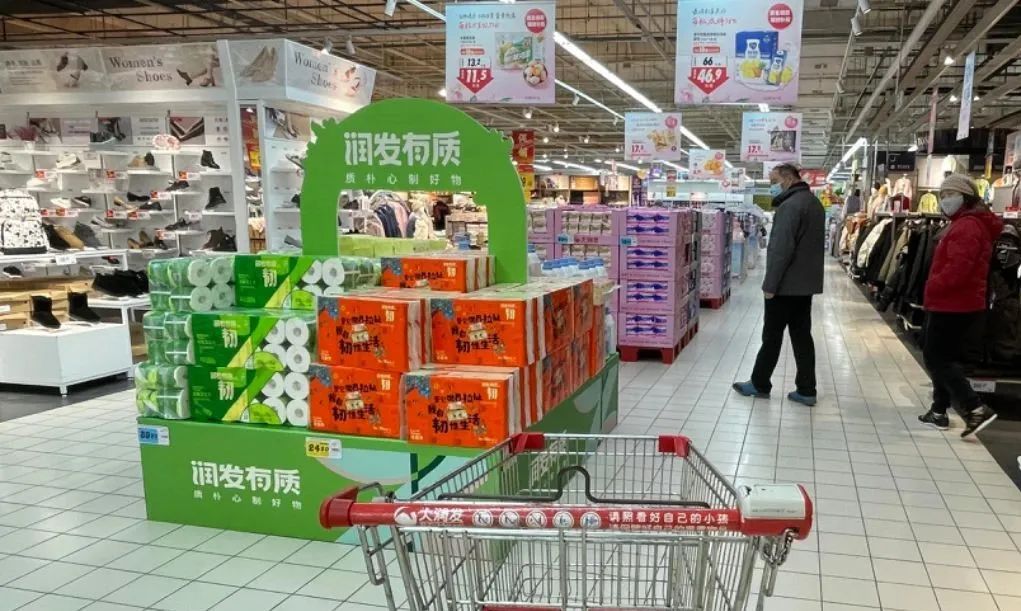
By following a localized and regional approach, RT-Mart met the needs of local consumers while strictly controlling costs, similar to Walmart. More importantly, RT-Mart placed great emphasis on product quality and service, developing its unique RT-Mart model.
RT-Mart's development was unstoppable during this period, and it became highly profitable. As RT-Mart expanded, it embarked on an acquisition spree, incorporating three "Asia Pacific Hypermarkets" under the Formosa Plastics Group into its fold, surpassing its long-time rival Makro and becoming the largest supermarket chain in China at the time.
In 2000, RT-Mart's parent company, Run Tai Group, formed a joint venture with French retailer Auchan, introducing international management concepts and models. Run Tai Group sold 67% of RT-Mart's shares for a total of NT$8 billion, turning RT-Mart into a joint venture company.
Five years later, in 2005, RT-Mart entered the top 10 of China's Top 100 Chain Stores for the first time, ranking second only to Hualian Supermarket, CR Vanguard, and Wumart in the supermarket sector.
RT-Mart even surpassed international retail giant Carrefour. In 2009, with sales of RMB 40.4 billion, RT-Mart overtook Carrefour to become the retail sales champion in mainland China.
I remember that RT-Mart also had stores in Shenzhen, which were highly attractive to the surrounding market and offered a comprehensive shopping experience similar to that of Walmart.
In July 2011, RT-Mart merged with Auchan and was listed on the Hong Kong Stock Exchange, making Sun Art Retail Group, which owned both RT-Mart and Auchan, the industry leader with a market share exceeding that of Walmart, becoming China's largest retailer.
RT-Mart became known as "China's most profitable supermarket" and achieved the rare feat of not closing a single store for 19 consecutive years.
At its peak, RT-Mart's parent company, Sun Art Retail Group, saw its share price reach a high of HK$13.4, with a total market value of up to HK$127.8 billion.
02
From Alibaba's Favorite to an Unwanted Child
Times are always changing rapidly, and as China entered the e-commerce era, it had a significant impact on traditional supermarkets, ushering in a new phase of development for RT-Mart.
About a decade ago, internet giants like Alibaba and JD.com began expanding into the offline market, particularly in the context of the booming O2O (Online to Offline) concept.
It was during this time that Sun Art Retail Group, RT-Mart's parent company, intersected with e-commerce giant Alibaba. At the time, Jack Ma and Alibaba saw the offline commercial value of RT-Mart and invested US$2.88 billion (approximately HK$22.4 billion) to acquire a 36.16% stake in Sun Art Retail Group in late 2007, becoming its second-largest shareholder. RT-Mart thus became Alibaba's experimental field for exploring offline new retail business.
In 2020, Alibaba invested an additional HK$28 billion in Sun Art Retail Group, increasing its stake to 72%. To bring Sun Art Retail Group under its wing, Alibaba invested over HK$50 billion in total.
When Alibaba acquired Sun Art Retail Group, it was big news. At the time, RT-Mart's founder Huang Mingduan expressed sadness about the acquisition, saying, "I defeated all my competitors, but I lost to the times. When the times abandon you, they don't even say goodbye."
In contrast, Alibaba had high hopes for Sun Art Retail Group's future. At the time, Alibaba CEO Daniel Zhang said that RT-Mart was different because of Alibaba, and Alibaba was different because of RT-Mart.
After completing the acquisition of RT-Mart, Alibaba attached great importance to its development, providing financial and human resources as needed. The traditional supermarket RT-Mart was thus labeled with the "new retail" tag and ushered in a "second spring."
When RT-Mart was acquired by Alibaba, it was at the peak of its success, with hundreds of stores nationwide, reaching a peak of 602 stores in fiscal year 2022.
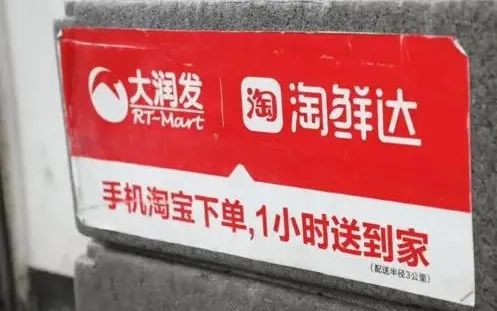
However, RT-Mart failed to sustain its growth momentum and soon entered a downward spiral, with its performance declining year after year. RT-Mart could not escape the curse of the decline of traditional supermarkets.
Sun Art Retail Group's financial reports show that it incurred its first loss in 2022, with further losses in 2023 and the worst performance in fiscal year 2024.
In fiscal year 2024, Sun Art Retail Group reported revenue of RMB 72.567 billion, a year-on-year decrease of 13.3%. It incurred a loss of RMB 1.668 billion, representing a 2,238.5% increase in the loss margin. The loss attributable to the company's owners was RMB 1.605 billion, a decrease of RMB 1.714 billion from the profit of RMB 109 million in 2023.
In fiscal year 2024, Sun Art Retail Group closed 20 hypermarkets, resulting in the departure of over 20,000 employees. Faced with poor performance, Alibaba had to replace Sun Art Retail Group's CEO and attempt new explorations.
Alibaba has undergone strategic adjustments in recent years, reflecting on and reassessing its previous aggressive push into new retail businesses. Especially after a new generation of management took over, Alibaba's attitude towards its offline new retail businesses has changed significantly.
In early February of this year, Alibaba Group Chairman Joseph Tsai stated during the company's third-quarter fiscal year 2024 earnings call that there were still some traditional brick-and-mortar retail businesses on the balance sheet, which were not the company's core focus. If Alibaba could complete the exit from these businesses, it would be very reasonable.
Later that March, rumors circulated within Alibaba that it had basically decided to sell RT-Mart and Hema to COFCO, with RT-Mart valued at approximately RMB 10 billion. However, both Hema and RT-Mart later denied these rumors.
The market generally predicts that Alibaba has long had Sun Art Retail Group on the block, aiming to sell it at a good price.
There have been rumors of Alibaba selling RT-Mart before, and the latest rumors suggest that Alibaba has been internally advancing the sale of RT-Mart, possibly accelerating the process.
03
Alibaba Should Have Sold RT-Mart Long Ago
Now that rumors have surfaced again that Alibaba is planning to sell RT-Mart, they are bound to spark speculation and heated discussion in the market.
However, in the view of Xinpinlue Finance, Alibaba should have sold RT-Mart long ago. Times have changed, and everything is different now. Alibaba no longer needs RT-Mart, and RT-Mart needs a new owner.
Amid the wave of the internet new retail concept, Alibaba aimed to bridge the gap between online and offline commerce, and RT-Mart, as a large supermarket chain, was essential to developing its offline business.
RT-Mart also recognized the changing landscape of the traditional supermarket business as e-commerce began to impact its operations. Later, as internet giants expanded into offline markets, traditional supermarkets needed to transform, adopt new labels, and keep pace with the times to revitalize themselves.
When Alibaba first invested in and then acquired a controlling stake in RT-Mart, the two parties collaborated to meet their respective needs. Alibaba was willing to invest heavily in acquiring RT-Mart, and RT-Mart was willing to join Alibaba's ecosystem.
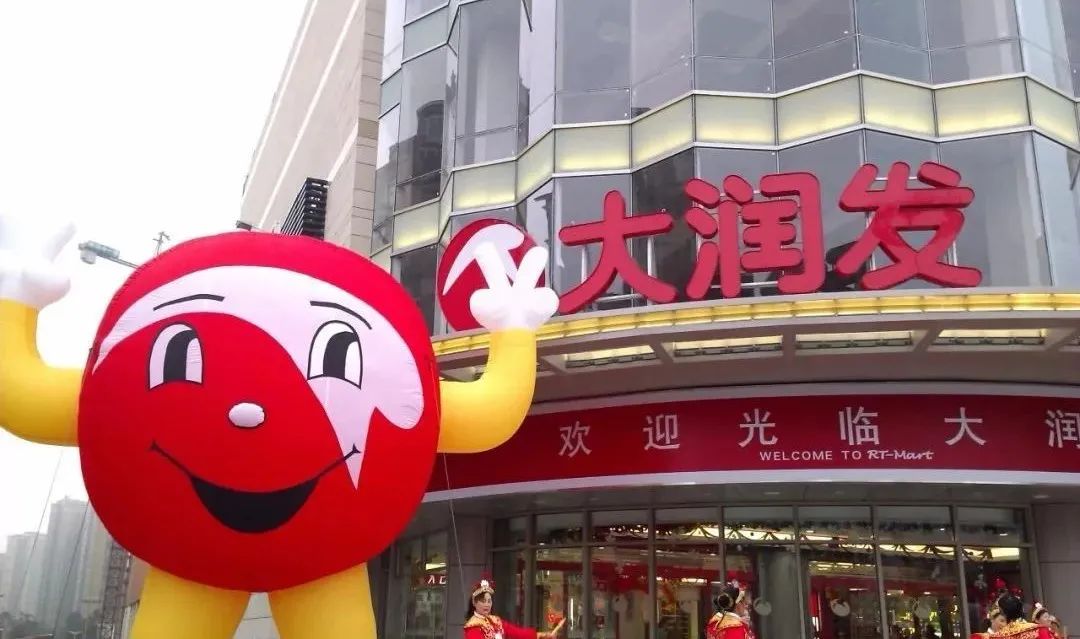
However, neither Alibaba nor RT-Mart anticipated the significant decline in the traditional supermarket sector in recent years. Many traditional supermarket brands have closed stores, with Walmart shutting down stores for several years and Carrefour nearly disappearing from the scene. No traditional supermarket player has been able to escape the fate of industry transformation.
At the same time, various new business models explored by internet platforms, such as dark stores, community shopping, and instant delivery, have further impacted traditional supermarkets, including RT-Mart.
If RT-Mart's performance continues to decline, with ongoing losses and store closures, its business model and commercial value will be significantly compromised. From a value investment perspective, Alibaba's acquisition of RT-Mart has not been successful.
For Alibaba, it neither generates performance returns nor adds significant value to its overall portfolio. Alibaba's acquisition of Sun Art Retail Group has not achieved its expected goals, and its share price has fallen significantly from its peak.
Offline supermarket business is a capital-intensive endeavor with high operating costs. Internet thinking and marketing strategies may add new labels to offline supermarkets but cannot fundamentally change their business models and underlying commercial logic.
As Alibaba accelerates its transformation and focuses on its core businesses, it needs to strengthen these areas rather than rely on offline traditional retail businesses like RT-Mart.
From RT-Mart's perspective, it is currently in a critical period of business adjustment, facing declining performance, store closures, and talent loss. It needs to reduce costs, increase efficiency, and accelerate new explorations.
The traditional supermarket industry is undergoing rapid transformation, with various players exploring new paths. Warehouse clubs represented by Costco have emerged as a new direction, while traditional supermarkets like Dongdaihe have gained popularity through their unique models, boosting confidence in the revitalization of Chinese supermarket brands.
Recently, Yonghui Supermarket, after undergoing restructuring, was acquired by Ye Guofu, the founder of Miniso, a popular "ten-yuan store" chain. This demonstrates that the commercial value of traditional supermarkets is still recognized, and there are still development opportunities, albeit requiring new faces.
RT-Mart needs a new shareholder, a new owner, fresh blood, and new resources. Interestingly, CDH Investments, rumored to be involved in the acquisition, is skilled in such operations, having previously acquired Belle International and preparing for its relisting after integration.
The key objective of corporate mergers and acquisitions is to create synergy and business multiplier effects between the two parties. Once the commercial value of one party changes or the other party's intentions shift, it becomes difficult to generate sparks.
The era of traditional retail supermarkets has changed, and the new retail concept has cooled off. As Alibaba focuses on more critical endeavors, RT-Mart is no longer a valuable asset. Therefore, Alibaba should have sold RT-Mart long ago.
04
Conclusion
Alibaba is a generation of e-commerce giants, while RT-Mart was once the king of supermarkets. The two came together due to the opportunities presented by the integration of online and offline commerce, attracting widespread attention. However, they now seem to have lost their luster.
Internet e-commerce platforms have their unique business models and advantages, while offline supermarkets have their commercial logic. Different industries have their own ways of playing, and the most important thing is to maximize their respective core advantages to create the greatest commercial value.
Although Alibaba has not officially sold Sun Art Retail Group, the significant operational pressures faced by Sun Art Retail Group and RT-Mart are evident. The future direction of this matter remains to be seen.
Interestingly, RT-Mart still has many loyal consumers and brand fans in the domestic market. Some netizens have commented that RT-Mart's products have become more expensive in recent years, with quality not as good as before. Perhaps, returning to its original intentions is crucial for RT-Mart.
Do you think Alibaba still needs RT-Mart? Are you optimistic about RT-Mart's future?

